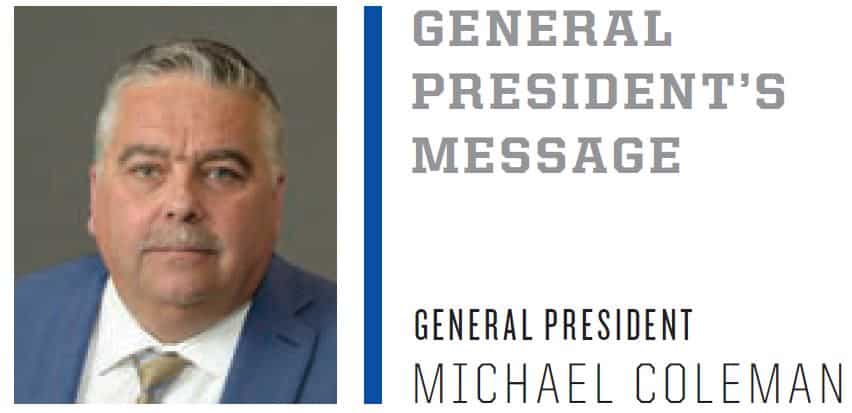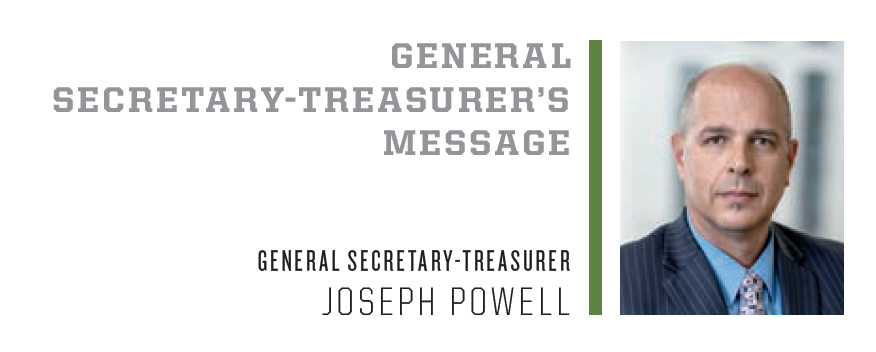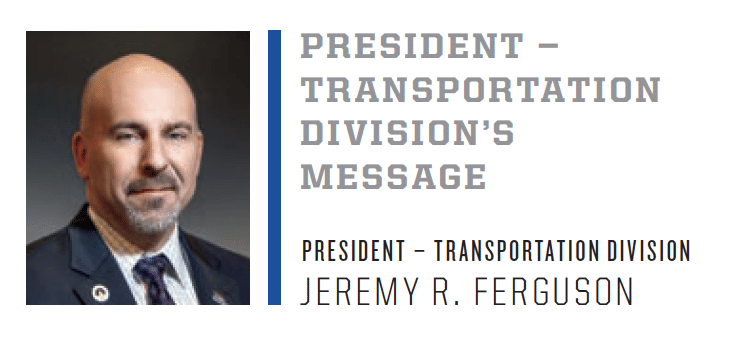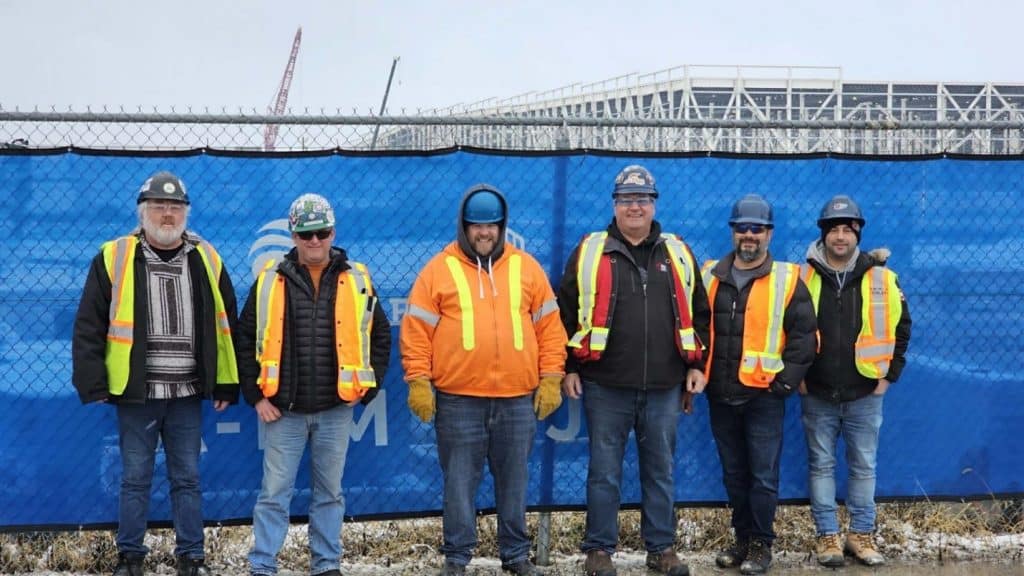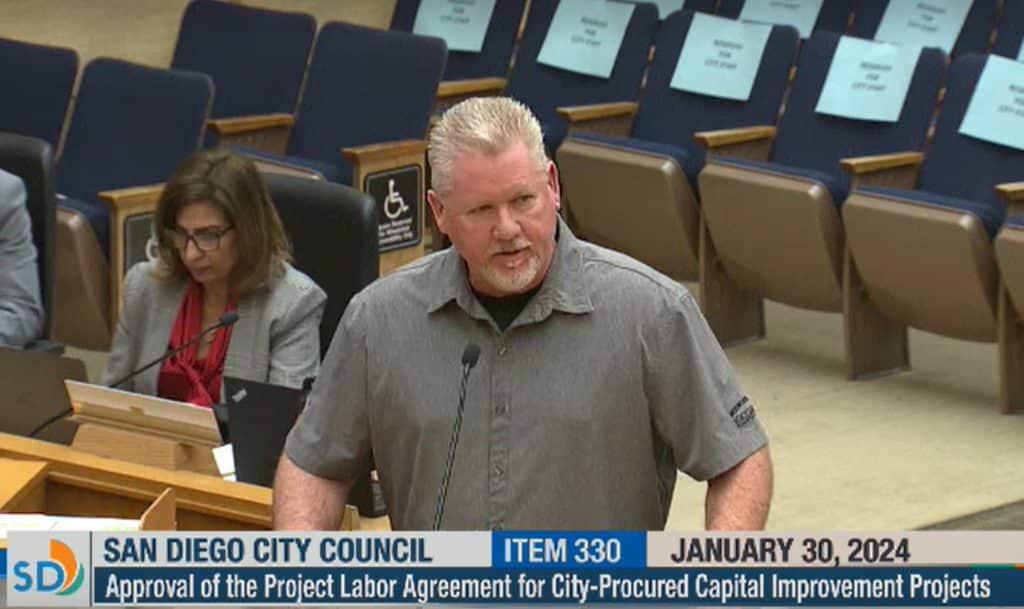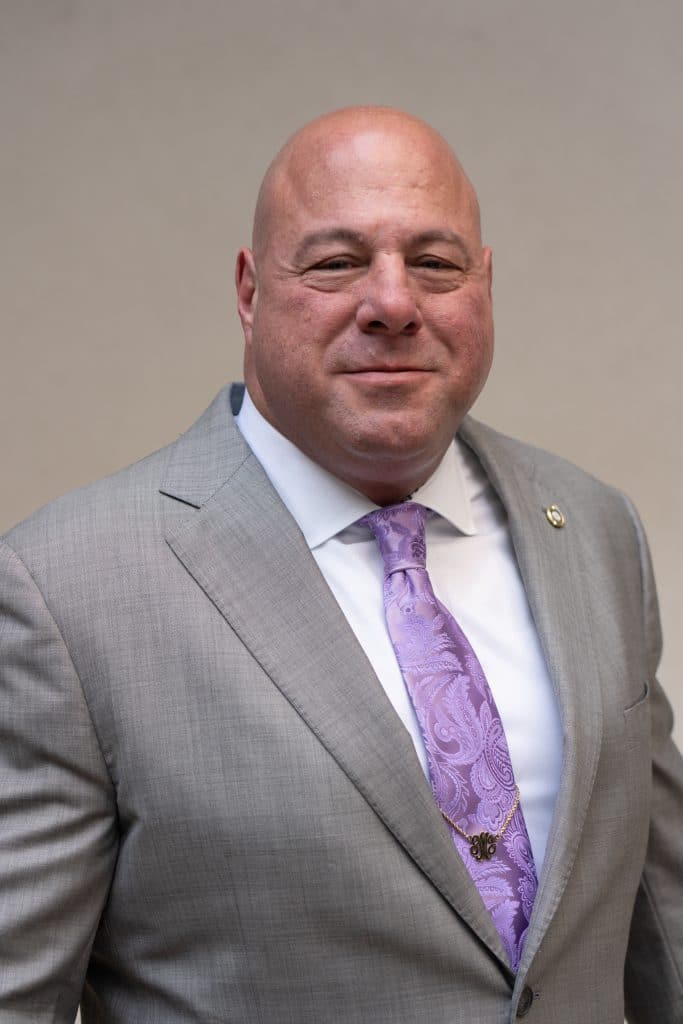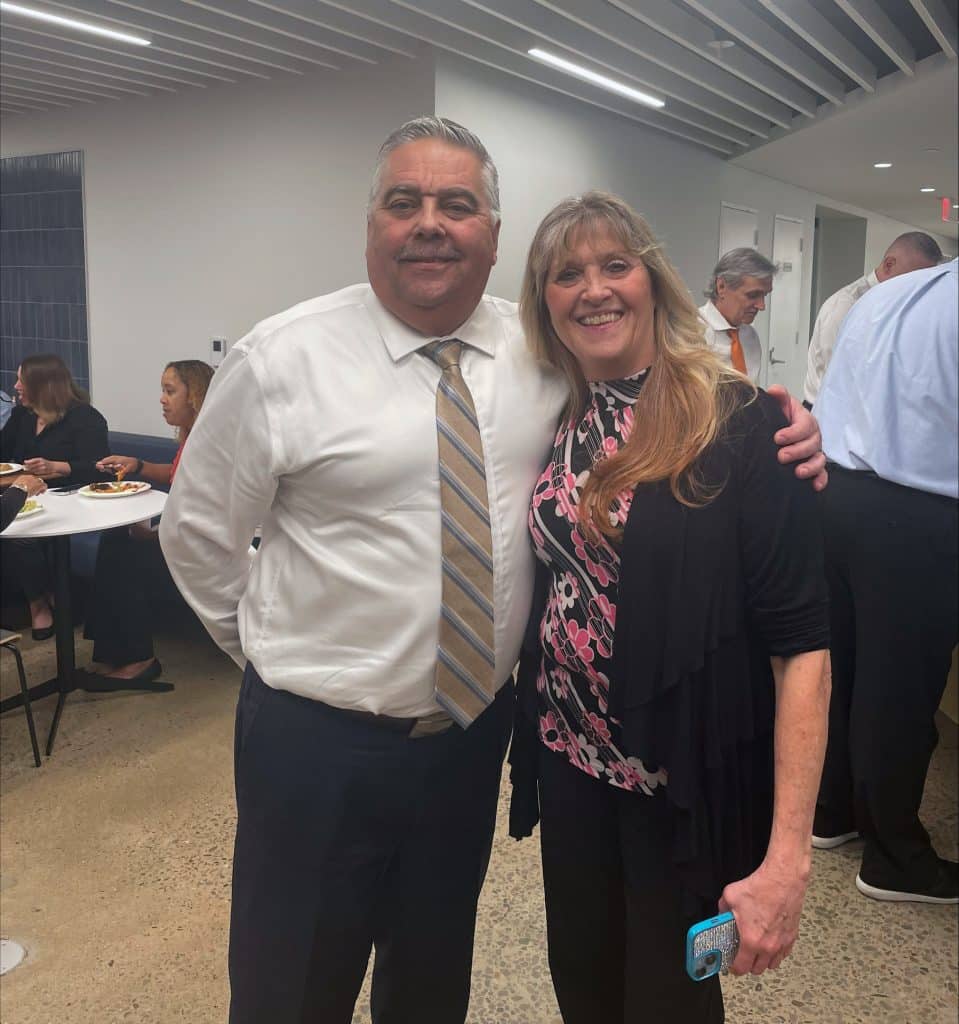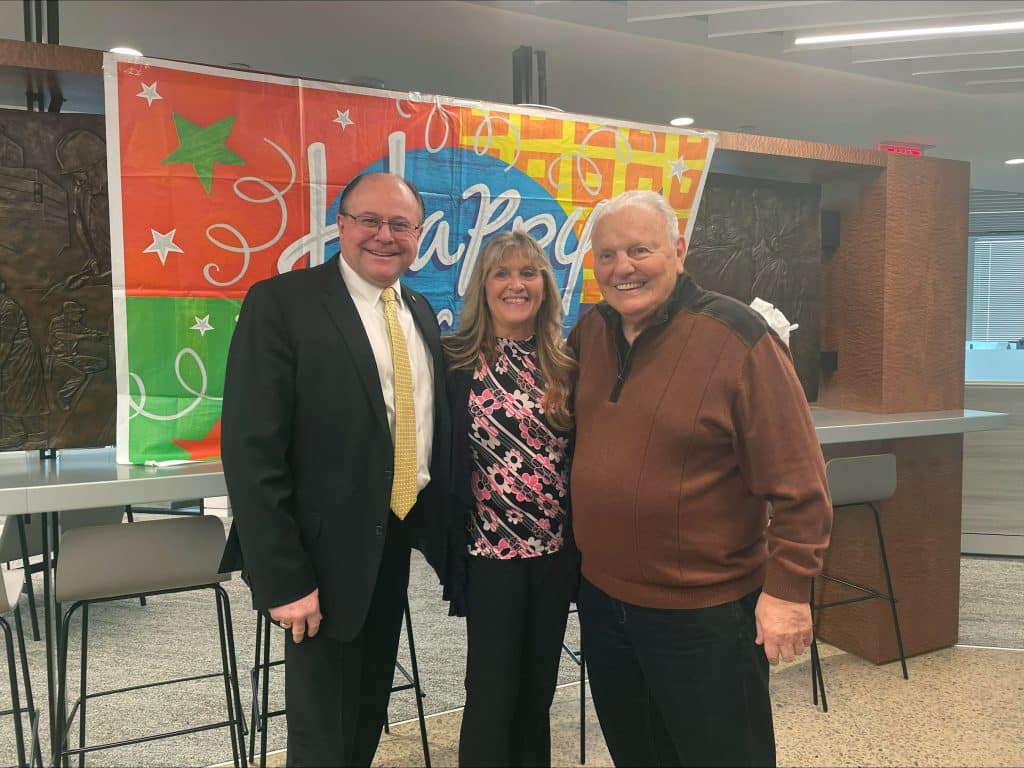Brothers and sisters,
In March, Canadian staff gathered at the Hilton Toronto to participate in the SMART MAP (Members Assistance Program) training. The Canadian Pension and Benet Steering Committee worked with the Sheet Metal Occupational Health Institute Trust (SMOHIT) to organize the SMART MAP class for Canada, which was held on March 26–28, 2024. The class had a tremendous turnout, with over 50 participants including business managers, financial secretary-treasurers, business representatives, organizers, training instructors and office staff from across Canada.
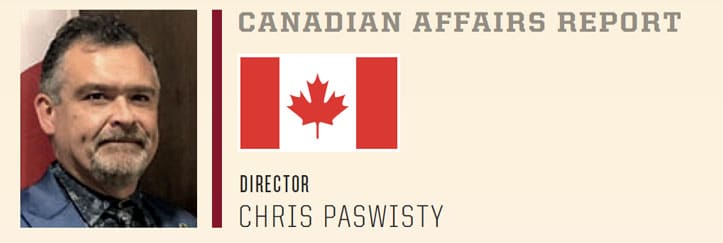
The training focused on providing staff with tools and strategies to help support members who may be experiencing addiction and/or mental health concerns. The training was well received, and attendees emphasized a desire for more education and training. A big thank you to Chris Carlough, director of wellness and mental health support, and the team from SMOHIT for providing real-life experiences so we can better assist our members in their time of need.
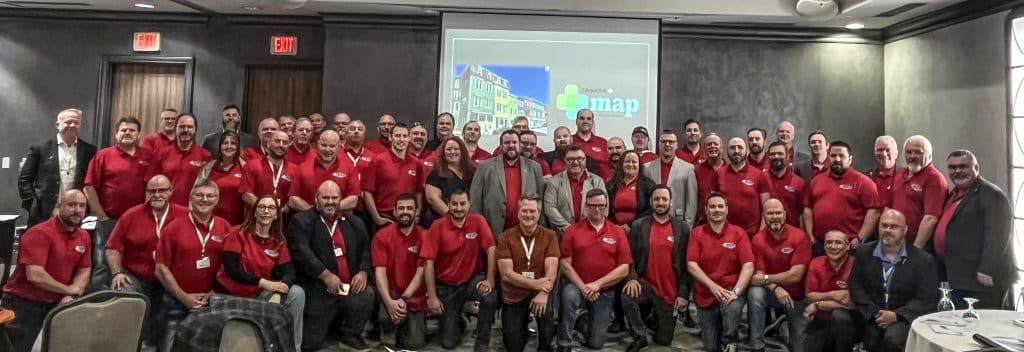
Canadian Council of Sheet Metal Workers & Roofers Convention
In May, the Canadian Council met in Saint John, New Brunswick, and elections were held. Congratulations to President Jason Pedersen (Local 276, Victoria), Vice President George McDonald (Local 56, Nova Scotia), Recording Secretary-Treasurer Mark Hall (Ontario Conference), and Members at Large TJ King (Local 297, West), Gerald Murphy (Local 512, East) and Bob Gougeon (Local 285, Ontario) on your elections.
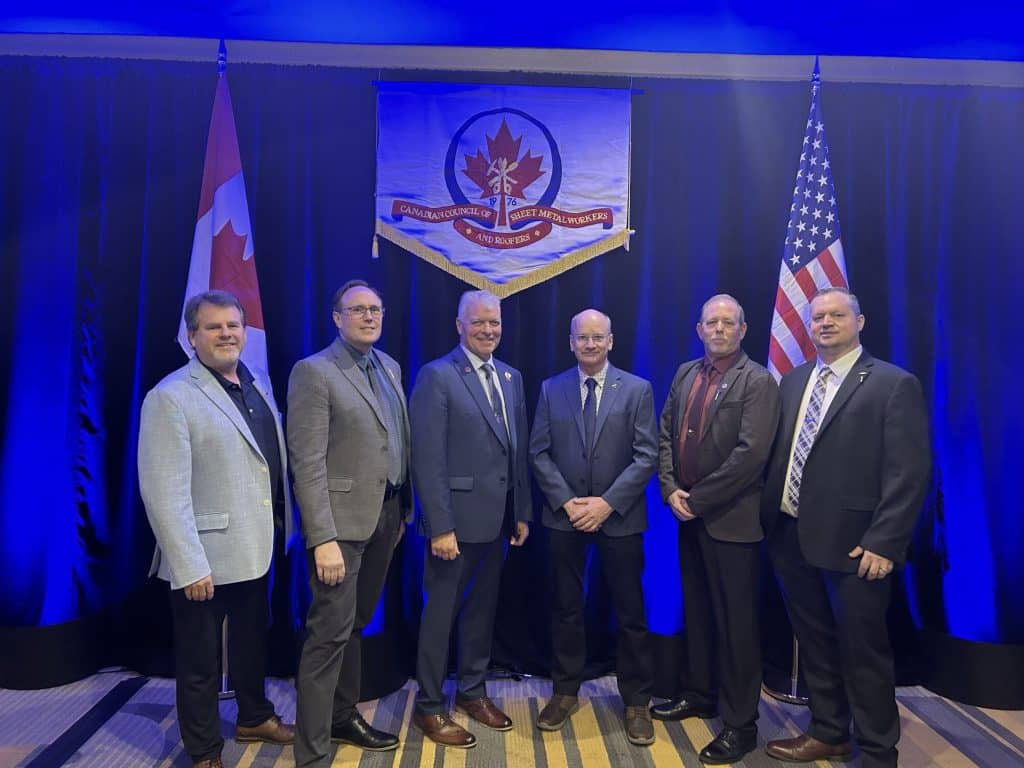
Retirement recognition was given to Brother Art White, who dedicated many years of service to the members, his local and the council. We wish him all the best in his retirement. Brother Lawrence Coulis was recognized for his contributions, as he will not be standing for reelection at Local 562 (Kitchener, Ontario).
The SMART Steering Committee presented a variety of initiatives, including SMART MAP Canada and peer-to-peer programming, HearCANADA, a hearing aid program, SMART index funds for Canadian local investments, Hamilton Lane SMART Air and Energy Fund and the SMART Canada Life Insurance Program.
Showcasing our skills
This year’s sheet metal apprentice competition showcased the talents of 12 apprentices who were tasked with duplicating the World’s Largest Axe! Built in 1991 and rising 49 feet above the glorious Saint John River, this landmark is a gleaming symbol of the industrious lives and legacies of Canada’s lumberjacks. Congratulations to first-place and Congeniality Award winner Kevin Berkmortel of Local 473 (London), second-place winner Jamie Weir of Local 30 (Toronto), third-place winner Jacob Wiebe of Local 235 (Windsor) and fourth-place winner Colin Nam of Local 280 (Victoria, B.C.).
The roofing competition demonstrated the skill and technique of nine apprentices who were tasked with the practical application of two roofing techniques: single and two-ply. Congratulations to first-place winner Elias Taylor from Local 276 (Victoria), second-place winner Matthew Rector, Local 409 (Halifax) and third-place and Congeniality Award winner Liam Power, Local 437 (Saint John, New Brunswick).
Staff announcements
Brother Jack Wall, former business manager/financial secretary-treasurer of Local 56 and eighth general vice president, has been appointed International representative for Atlantic Canada, replacing retired International Representative Leonard Day. Brother Wall started his new position on January 1, 2024.
On May 1, 2024, Brother Patrick Gordon was appointed to the position of International representative for business development in Canada. This position will be key in leading nationwide campaigns with coalitions of International and local union staff, along with key partners in the architectural, roofing, HVAC and building envelope sectors. Emphasis will be placed on organizing, educating and promoting our trades to the public, our members and buyers of construction.
Raising our profile
SMART Canada has been working with a government relations firm, which has been paramount in establishing and creating networking opportunities with various MPs, MPPs and ministers. We have appeared before the Ontario Finance Committee to make recommendations for provincial oversight of compulsory certification of licensed trades, investing in the Infrastructure Health & Safety Association (IHSA), consultations on jobsite working conditions and equitable access to Skills Development Fund Training Streams. Together, we have developed government relations priorities centered around consumer protection, skilled trades and long-term care facilities. We have authored consumer alerts, as well as stories on fraud prevention and air quality. As the wildfires continue to burn across our country, we will continue to raise the issue of indoor air quality.
I remain, fraternally yours,

Chris Paswisty
Director of Canadian Affairs
